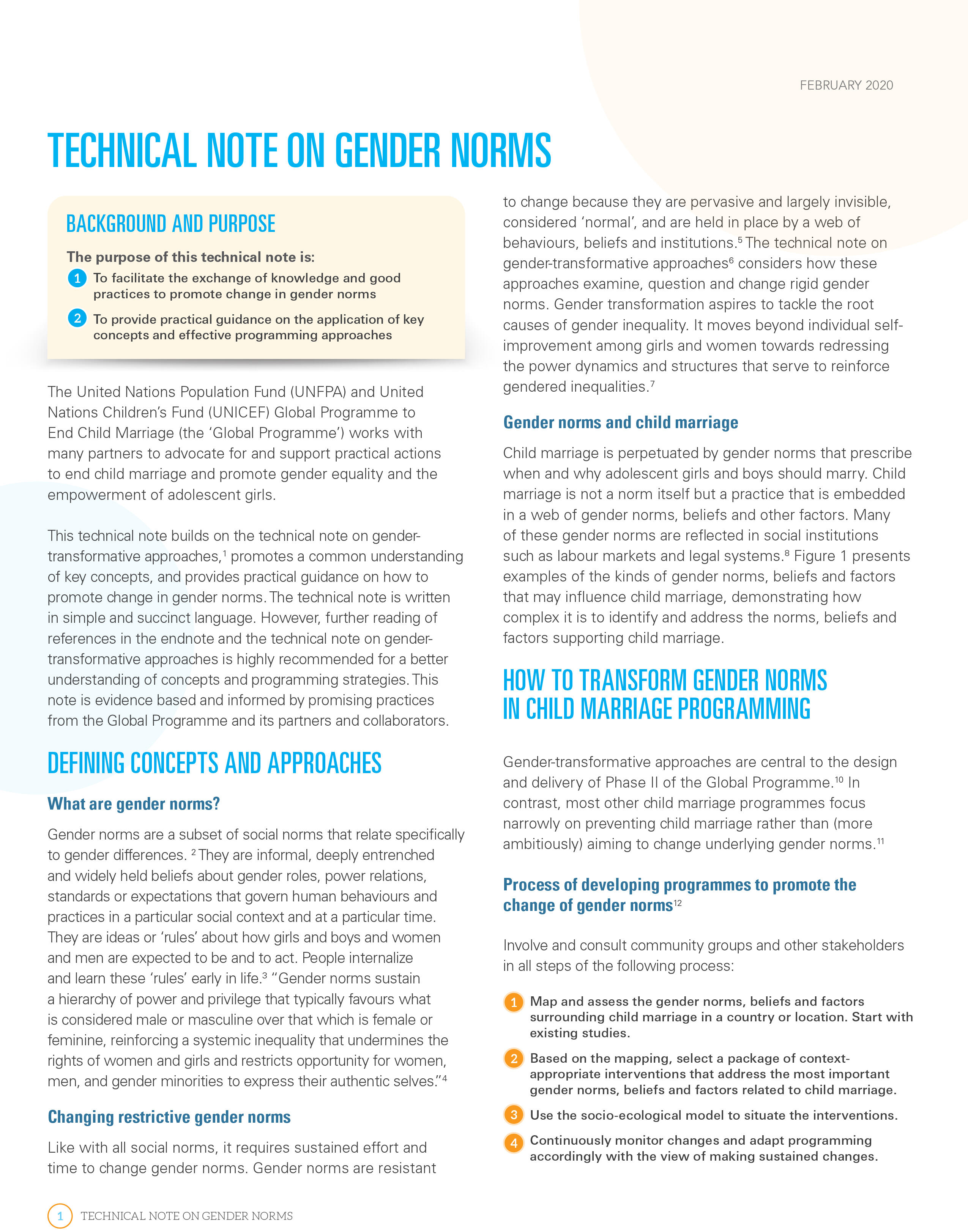This technical note aims to provide practical considerations for those implementing and supporting life-skills programmes or programmes that integrate life skills, particularly when focused as a strategy within child marriage prevention and girls’ empowerment programmes. It is based on the Rapid Review of Life Skills Programmes and Curricula, covering 11 life skills modules and meta-analyses of life skills programmes in developing countries to determine characteristics of design (target group, the skills and outcomes sought), implementation (platforms, methods, resourcing and time) and grounding in community and services that promote girls’ empowerment. The note provides a snapshot of modules and manuals used by countries under the UNFPA-UNICEF Global Programme to End Child Marriage and notes that life-skills programmes are delivered through different approaches. While empowerment is the common feature of girl-centred interventions, the Global Programme is implementing two intrinsically and complementary evidence-based approaches, namely life skills education aimed at increasing positive and adaptive behaviour by practicing psychosocial skills, and comprehensive sexuality education with a focus on gender and human rights, aimed at equipping girls with knowledge, skills, attitudes and values for empowerment and realizing their health, well-being and dignity.
